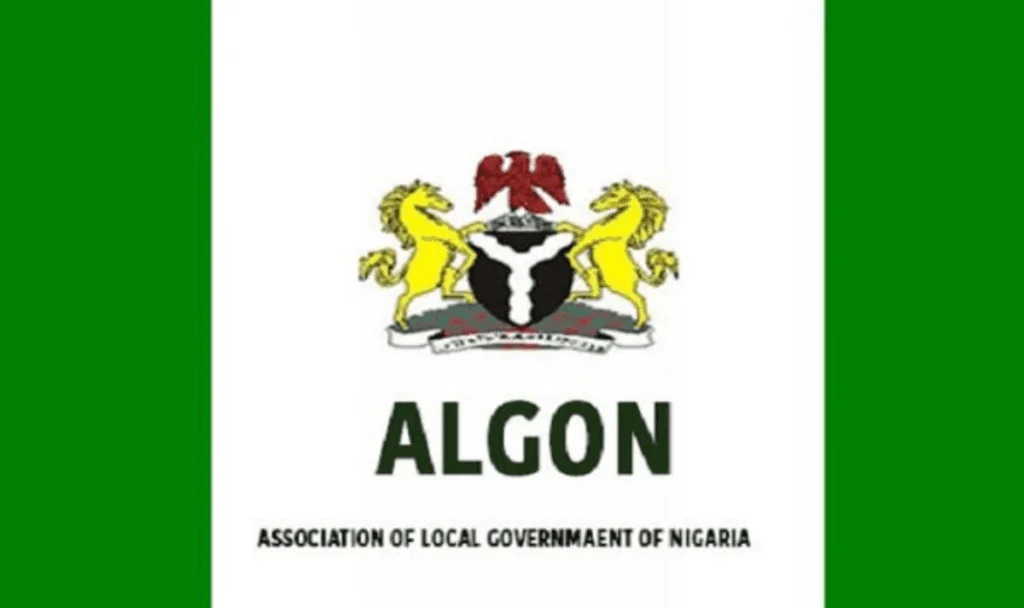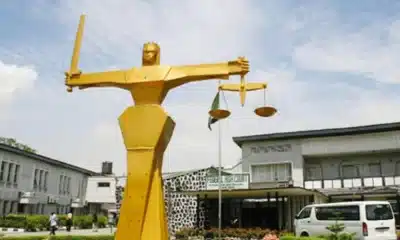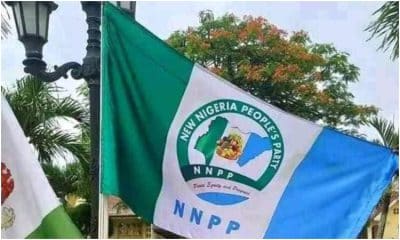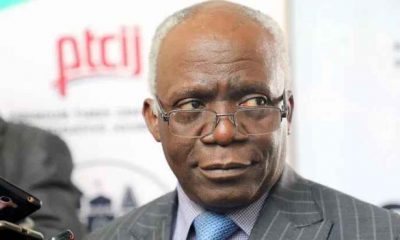Nigeria News
LG Autonomy: Court Adjourns ALGON’s Suit Against Federal, State Govts

The Federal High Court in Abuja has postponed a lawsuit initiated by the Association of Local Governments of Nigeria (ALGON) against both the Federal and State Governments until May 29.
The case, which was set to be addressed before Justice Inyang Ekwo, could not proceed because the court did not sit on that day.
Consequently, the court has rescheduled the matter for mention on May 29.
The plaintiff in this case, identified as FHC/ABJ/CS/353/2025, is the Registered Trustees of ALGON.
On July 11, 2024, the Supreme Court ruled in favour of granting financial autonomy to local governments across the nation.
In response to the alleged non-compliance by state governments with this ruling, ALGON has filed the lawsuit.
Naija News reports that the defendants include the Attorney-General of the Federation and Minister of Justice, the Federal Republic of Nigeria, and 23 additional parties.
These parties encompass the Minister of Finance, the Central Bank of Nigeria, state Commissioners for Finance, the Minister of Budget and National Planning, and the Accountant-General of the Federation.
Furthermore, the suit includes the Revenue Mobilisation, Allocation and Fiscal Commission, the Nigerian National Petroleum Company Limited, several commercial banks, and an individual named Bello Lawal as defendants.
In this legal action, ALGON seeks to ensure that the 774 local councils are represented at meetings of the Federation Account Allocation Committee, where allocation discussions take place.
The trustees requested the court to affirm that, following the Supreme Court’s ruling on July 11, 2024, the 1st to 8th defendants are prohibited from distributing funds to the 774 local government councils in Nigeria through the 9th to 23rd defendants without prior authorization and approval from the plaintiff.
Additionally, they sought a ruling stating that the 1st to 7th defendants are not permitted to discuss, approve, disburse, or engage in any manner with the funds allocated to the 774 local government councils in Nigeria without the involvement of representatives from those councils.
The group argued that while the Supreme Court’s decision aims to enhance local government administration, the Attorney General of the Federation, the Ministry of Finance, state Commissioners of Finance, and the Central Bank of Nigeria have taken hasty actions to undermine the implementation of this ruling.
ALGON, represented by its attorney Okechukwu Uju-Azorji, claimed that the 9th to 23rd defendants, identified as commercial banks, are already positioning themselves to act as intermediaries or storage facilities for any funds or allocations intended for the local government councils.
In response, the Central Bank of Nigeria, through its preliminary objection submitted by Sam Ologunorisa, SAN, requested the court to dismiss the case on the grounds of lack of jurisdiction.
The apex bank argued that ALGON is not a legally recognised entity under the constitution or any statute and was neither a party nor a beneficiary in the Supreme Court case that it now references.
Counsel for FAAC, Olawale Fapohunda, SAN, contended that ALGON did not possess the legal authority to initiate the case, thus depriving the court of its jurisdiction.
Additionally, the state Commissioners of Finance, represented by their attorney, maintained that the members of FAAC, as defined by law, do not include representatives from the 774 local government areas, contrary to the claims being made.
They referenced Section 6(1) of the Allocation of Revenue (Federation Account, etc.) Act of 1982, which specifies the statutory membership of FAAC and explicitly excludes local government representatives.
In reply, ALGON submitted a counter-affidavit affirming its legal standing.
It claimed to have been established as an association on May 10, 2002, with the primary aim of advocating for and safeguarding the autonomy and interests of local governments in Nigeria.












